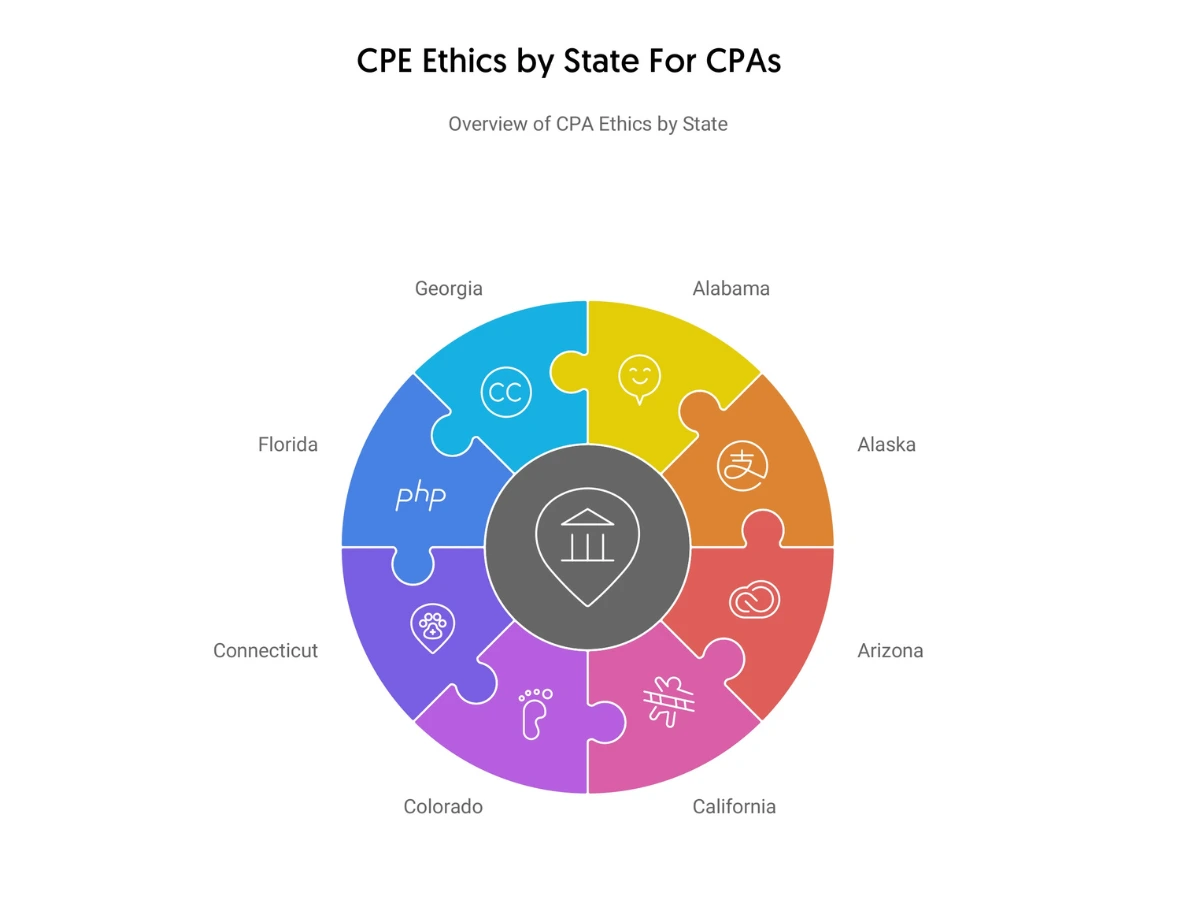CPE Ethics by State For CPAs |
| The Last Self-Study CPE Website You Will Ever Need (Click for Subscriptions) |
The easiest way to find your state's Ethics is to enter the state name in the Keyword box below and click Search.
Or, click the video thumbnail just to the right to see how to search for Ethics courses.
Or, scroll until you find your state's Ethics courses.
Nearly every state or jurisdiction requires their CPAs to pursue CPE ethics to meet their CPE requirements. However, depending on your state, you need to pursue generic CPE ethics, state CPE ethics, or both.
This page is intended to help you get a solid understanding of CPE ethics by state. By using your state’s name as the search term, you can see whether or not you’re required to complete state-specific CPE ethics courses.

If you need to pursue state-specific CPE programs, you should be careful about choosing the sponsor as per the guidelines set forth by your State Board. It’s also important to note that depending on your location, you may be able to meet all your ethics requirements by taking state CPE online programs.
Before we delve deeper into state CPE ethics, it’s important to mention that while we’ve tried our best to provide you with as much accurate information as we can, you should always double-check it before making a final decision.
Whether it’s about taking state CPE ethics online self-study programs, online state CPE webinars, or something else, you should consult with your State Board to make an informed decision.
Let’s start with the basics.
Similar to other CPE requirements, CPE ethics requirements vary from one state to another. Therefore, it’s of paramount importance to comprehend your state’s specific CPE requirements properly and at the beginning of your CPE reporting period.
Some State Boards have already approved several online state CPE ethics programs. If you’re licensed in one of those states, you must take your pick from the board-approved CPE ethics programs. If you don’t follow this guideline, your State Board may not acknowledge your CPE ethics credits, which in turn, will make you non-compliant with your CPE requirements.
In some states, you aren’t required to complete any Board of Accountancy CPE ethics programs. If you belong to one of them, you may need to take generic CPE ethics programs. However, you still need to complete them as per the guidelines associated with your Board of Accountancy CPE courses.
If all these seem to be slightly complicated, just continue reading to get a clear comprehension of them.
Here, we’ve compiled state-specific CPE ethics requirements in an alphabetical order.

South Dakota doesn’t have any ethics CPE requirements.
At CPEThink.com, we take great pride in our ability to offer high-quality state CPE ethics programs at affordable prices. All our state-specific CPE ethics courses have been developed by renowned authors and come with the industry’s best 100-day, 100% money-back guarantee, which means you get complete peace of mind.
If you want to get more information about CPE ethics by state or any particular state-specific CPE programs, reach us and we’ll be happy to answer your questions.
Check out what other customers are saying.